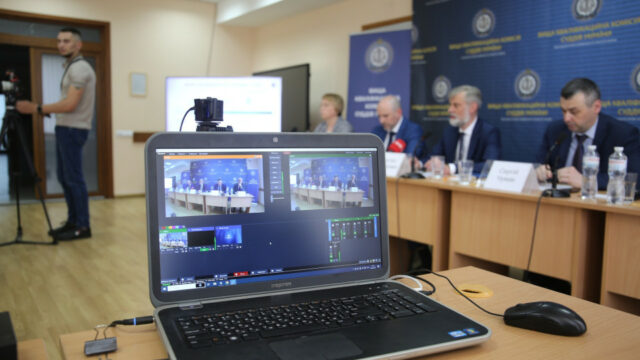New Standards for Judge Candidates: A Step Towards Quality Justice
The High Council of Justice has recently outlined new requirements aimed at enhancing the selection process for judge candidates, focusing particularly on assessing cognitive abilities. This innovative approach aims to ensure that those entrusted with upholding the law possess the critical thinking skills necessary for effective judicial decision-making. But what does this mean for the future of our justice system?
Why Cognitive Testing Matters
Judges play a vital role in the legal landscape, influencing lives through their decisions. As society evolves, so do the complexities of legal cases, requiring judges who can think critically and analytically under pressure. Imagine a scenario where a judge must decide a case involving emerging technologies or complex financial regulations—cognitive testing can help identify candidates who can navigate these intricate issues effectively.
Key Parameters for Success
While the specifics of the cognitive testing process are still in the works, the High Council of Justice has outlined several key parameters that will shape this initiative:
- Professionally Oriented Tasks: The tests will be built around real-life legal scenarios, focusing on practical skills rather than abstract knowledge.
- Software Requirements: Specific software tools will be developed to streamline the testing process and evaluate candidates consistently.
- Expert Input: Legal professionals and cognitive science experts will collaborate to ensure that the testing process is both relevant and effective.
Real-world Applications and Insights
To understand the importance of this initiative, consider the recent increase in complex criminal cases involving cybercrime. Judges in these cases must not only interpret the law but also comprehend intricate technological evidence. A study by the National Center for State Courts found that over 60% of judges felt unprepared to deal with such high-tech cases. By incorporating cognitive testing, the Council aims to bridge this skills gap, ensuring that judges are well-equipped to handle modern legal challenges.
Looking Ahead: The Role of Technology
The integration of technology in the judicial selection process is a game changer. Beyond just cognitive testing, the High Council of Justice plans to invest in software solutions that enhance the overall evaluation of candidates. These tools could include simulations of courtroom scenarios, providing an interactive platform for candidates to demonstrate their skills in real-time.
Conclusion: Building a Stronger Justice System
The High Council of Justice’s initiative to implement cognitive testing for judges is a significant step towards fostering a more competent and efficient judicial system. By ensuring that judges possess vital analytical skills and practical knowledge, we move closer to a legal system that can effectively navigate the complexities of contemporary society. As we await further details, one thing is clear: enhancing our judiciary’s capabilities is a commitment to justice for all.
Stay tuned for updates on how these changes will unfold. Together, we can look forward to a brighter future where justice is served with skill and integrity.






